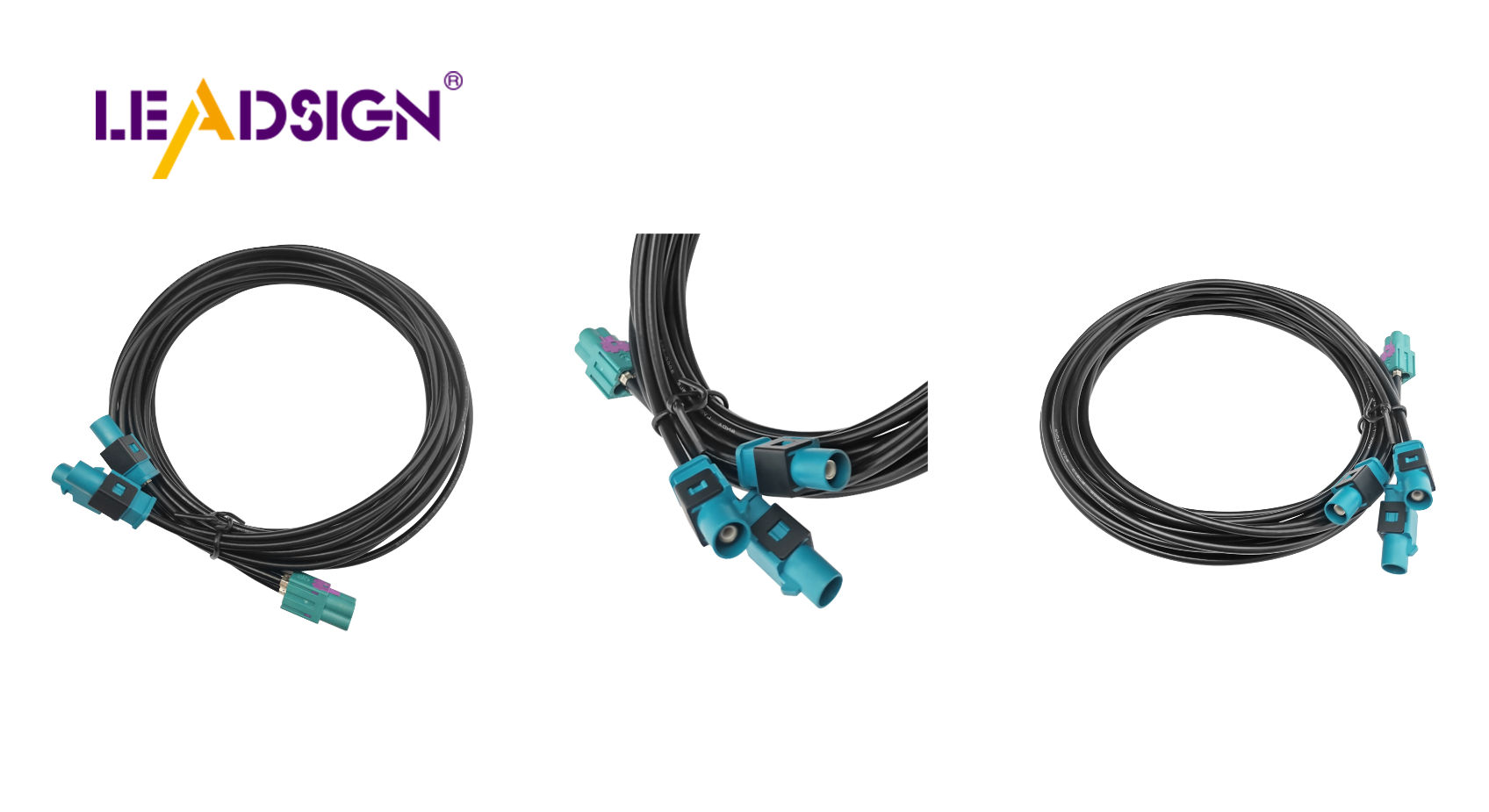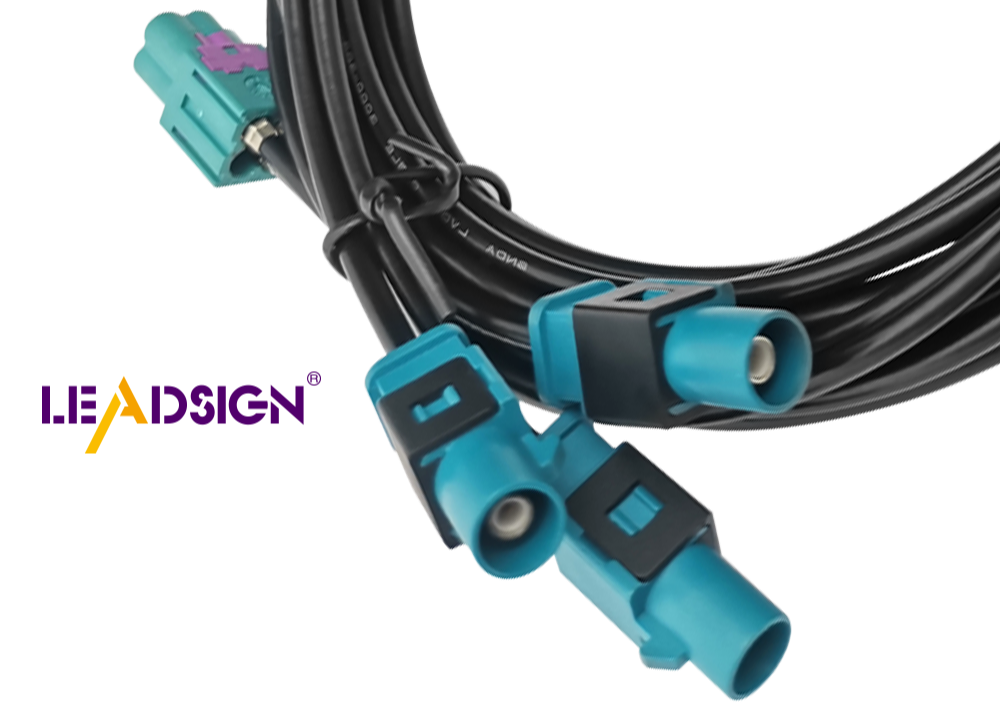Understanding Automotive Wiring Connector Types

Automotive electrical connectors types play a crucial role in modern vehicles. They facilitate the seamless sharing of power and signals among components, ensuring optimal performance and safety. As the automotive industry evolves, the demand for advanced connectors increases. The market for these connectors is projected to expand from USD 7.01 billion in 2024 to USD 8.76 billion by 2029, highlighting their essential role in vehicles. Understanding the various types of automotive electrical connectors is key to maintaining vehicle safety and functionality.
Common Types of Automotive Electrical Connectors

Automotive electrical connectors types are key parts in cars. They help send power and signals well. Knowing these types helps automotive electrical connectors types for each job.
Blade Connectors
Characteristics and Uses
Blade connectors, also called spade connectors, are flat metal pieces. They fit into matching slots. People use them a lot in cars because they are simple and work well. These connectors join wires to things like speakers and lights. Their design makes connections fast and easy, so many people choose them for car wiring.
Advantages and Disadvantages
Advantages:
Simple to connect or disconnect, making repairs quick.
Come in different sizes for various wire thicknesses.
Hold tight against shaking or movement.
Disadvantages:
Can rust if wet, which hurts their ability to conduct electricity.
Not good for high-power uses without extra safety measures.
Bullet Connectors
Characteristics and Uses
Bullet connectors are round and fit into matching sockets. They are often used where space is tight in car wiring. You find them in light systems and other low-power uses.
Advantages and Disadvantages
Advantages:
Small size fits well in cramped spots.
Stay connected even with some shaking.
Disadvantages:
Can't handle as much power as other types.
Might loosen over time if not secured well.
Pin Connectors
Characteristics and Uses
Pin connectors have pins that go into matching sockets. They work in many car jobs, like powering headlights or starters. These connectors keep a car's electric system working right.
Advantages and Disadvantages
Advantages:
Good for high-power needs with strong connections.
Come in many styles for different wiring setups.
Disadvantages:
Harder to set up than simpler kinds.
Need exact alignment to connect right.
Knowing these automotive electrical connectors types is important for fixing or caring for cars. Each type has its own pros and cons, so picking the right one matters a lot.
Butt Connectors
Characteristics and Uses
Butt connectors are important in automotive electrical connectors types. They link two wires end-to-end, keeping electricity flowing. These connectors are used when wires need joining or fixing. For example, they help extend wire harnesses or fix broken wires. Butt connectors make strong connections to keep the car's electric system working well.
They come in different sizes for various wire thicknesses. They are made from materials that don't rust, so they last long. Some have heat-shrink tubing for extra protection from water and weather. This makes them good for wet or tough places.
Advantages and Disadvantages
Advantages:
Easy to Use: Butt connectors are simple to put on. You just slide the bare wire ends into the connector and squeeze it tight.
Flexible: They come in many sizes, fitting different wires and uses.
Strong: Many butt connectors resist rust, making them last longer in cars.
Disadvantages:
Not Reusable: Once squeezed, you can't use them again easily. If changes are needed, you must get a new one.
Weak Links Possible: Bad squeezing can cause weak links, leading to electric problems. Using the right tools helps make sure it's tight.
Special Automotive Electrical Connectors
In cars, special connectors are very important. They help cars work well in different situations. These connectors can handle tough environments. This makes them very useful in today's car systems.
Weatherproof Connectors
What They Are and How They're Used
Weatherproof connectors are needed in places with rain or bad weather. They have seals to keep water and dust out. This helps them work well. You often find them in lights outside the car or near the engine.
Example: A weatherproof connector is used in a car's headlights. It keeps working even if it rains or snows.
Good and Bad Points
Good Points:
Long-lasting: These connectors don't rust easily, so they last longer.
Trustworthy: They stay connected even when it's wet or windy, stopping electric problems.
Bad Points:
Pricey: They cost more than regular ones because they are special.
Harder to Set Up: Putting them on might take more time to make sure they're sealed right.
High-Temperature Connectors
What They Are and How They're Used
High-temperature connectors work where it's really hot. They're made from stuff that doesn't melt easily. You find them near engines or exhausts where heat is strong.
Example: In a car's exhaust, these connectors keep sensors linked even with lots of heat from the engine.
Good and Bad Points
Good Points:
Heat-Proof: These stay strong when it's hot, stopping breakdowns.
Useful Everywhere: They fit many jobs in cars.
Bad Points:
Fragile Materials: The stuff they're made of can break if not handled gently.
Hard to Find: These might not be as easy to get as normal car connectors, which could slow down fixes or setups.
Knowing about these special automotive electrical connector types is key for fixing cars right. Picking the right one makes sure the car's electric parts stay strong and work well no matter what happens outside.
Picking the Right Connector for Your Car
Choosing the right connector is important for a car's electrical system to work well. This part gives tips on what to think about and expert advice to help you choose wisely.
Things to Think About
Weather Conditions
When picking connectors, think about where your car goes. Some connectors, like Remke’s silicone-molded Mini-Link™, handle heat, chemicals, and sunlight well. They are good for tough places, giving protection and lasting long. Weatherproof ones are needed in wet or dusty spots for long use.
Power Needs
Knowing power needs helps pick connectors. Different types fit different power levels. For example, Amphenol ICC's DIN 41612 High-Temperature (HT) connectors work in hot places with up to 2A power from -55°C to +125°C. These keep things safe in hard jobs. Match the connector's details with the car's needs to stop problems.
Expert Advice
Talk with Experts
Talking with experts helps pick the best connectors for cars. They can suggest what fits best and how to put them on right so they last longer.
Mistakes Not to Make
Avoiding mistakes saves time and money. One mistake is not thinking about future changes in the car's system when picking connectors. Choose flexible ones like Fischer Connectors' Fischer Core Series Brass, which can change if needed later. Another mistake is not checking if new parts fit old ones, which can cause problems.
By knowing what matters and listening to experts, you can pick the right automotive electrical connectors types. This keeps your car's electric parts strong and working well no matter what happens outside.
Knowing automotive wiring connector types is key for car safety and performance. Picking the right connector helps power and signals work well, stopping problems. Connector Experts say using correct connectors makes systems run better. Wrong ones can cause issues. Asking experts like Zero Liter Electronics can help you choose the right connectors and save money. As Waytek Wire advises, think about future needs and pick high-density connectors for more use and trust. Make smart choices to keep your car's electrical systems strong and working well.
See Also
Exploring HSD Connectors in the Auto Sector
Significance of Fakra Connectors in Contemporary Cars
Navigating Ford's Fakra Connector System

